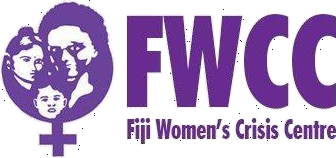Cam Ronald of the New Zealand-based Pacific Prevention of Domestic Violence Programme (PPDVP) told the meeting serious attitudinal changes need to happen among police officers if violence against women is to be effectively addressed in the region. PPDVP is a joint initiative of NZAID, the New Zealand Police, and the Pacific Islands Chiefs of Police (PICP) organisation.
The survey was carried out in the Cook Islands, Kiribati, Samoa, Tonga and Vanuatu in April among 860 police officers. The survey examined what police think of domestic violence, how much knowledge they had on the issue, what their attitudes were and what the practices are when dealing officially with a case of gender-based violence.
Mr Ronald’s comments were made at the quadrennial sixth Pacific regional meeting on the elimination of violence against women organised by the Fiji Women’s Crisis Centre taking place at Novotel hotel in Nadi from 12-16 November.
Mr Ronald said he would be looking to the Pacific Women’s Network Against Violence Against Women to help boost the effectiveness of further surveys by asking questions that would help those working in the area of gender-based violence understand the gaps that remain.
“The surveys that we have done have indicated that many of the police perhaps do not understand violence against women and that we have not hit our target group yet,” said Mr Ronald of the PPDVP survey.
While the results of the survey have yet to be officially published by the police forces of the five countries, generally the findings show many gaps in the knowledge of officers. In some cases female police officers revealed they had themselves been subjected to sexual violence by their own colleagues.
One of the questions in the survey asked police officers who they thought were best equipped to deal with domestic violence from a range of institutions. The results show some confusion on the role of the police in these circumstances.
“Now if you have a police officer standing there in the middle of the night trying to deal with (a situation of domestic violence) and he’s not sure whether it’s the church, the family, the NGOs or the police who should deal with it, then he or she is going to make the wrong decision.”
The survey also asked officers about their attitudes to gender, equity and the rights of women. Again the results show an interesting range of attitudes among police officers.
Earlier in the day, Assistant Superintendant of Police Petero Tuinirarama, the officer-in-charge of the Namaka Police Station in Nadi, a male advocate for women’s human rights, outlined the work his officers have done to deal with the problem of violence against women and children in his area of command.
The Namaka Police District, including Sabeto Police Station, have worked in partnership with the Fiji Women’s Crisis Centre and a committee to eliminate violence against women in implementing a no-drop policy on domestic violence.
ASP Tuinirarama said his force and the committee he works with recognised that “individual violence is supported by a social system based on power and control” and that those in authority needed to be sensitised to the issue of gender-based violence so perpetrators are given impunity for violence.
An important part of ASP Tuinirarama’s plan to make Nadi a violence-free zone is the creation of a special unit to deal with domestic violence, sexual offences, child abuse and sexual exploitation by tourists. Working with the committee to eliminate violence against women, once set up this will be first multi-dimensional unit of its kind in the Fiji Police Force. The unit is expected to be staffed by female officers who have undergone sensitisation and training to deal with gender-based violence.
Davis Saravanu of the Vanuatu police and David Kila of the Royal PNG Constabulary also spoke of the success and challenges they have had in changing attitudes and working to eliminate violence against women in their districts.
The five-day meeting ends on Friday when it is expected a series of resolutions mapping out the work of the Pacific Women’s Network Against Violence Against Women for the next four years.
More than 60 participants from 11 Pacific countries are attending the meeting that is convened each four years.
ENDS
FOR COMMENTS ON THE MEETING OR ON THE ISSUE OF VIOLENCE AGAINST WOMEN AND GIRLS
Please contact FWCC Coordinator Shamima Ali on 9992875.
